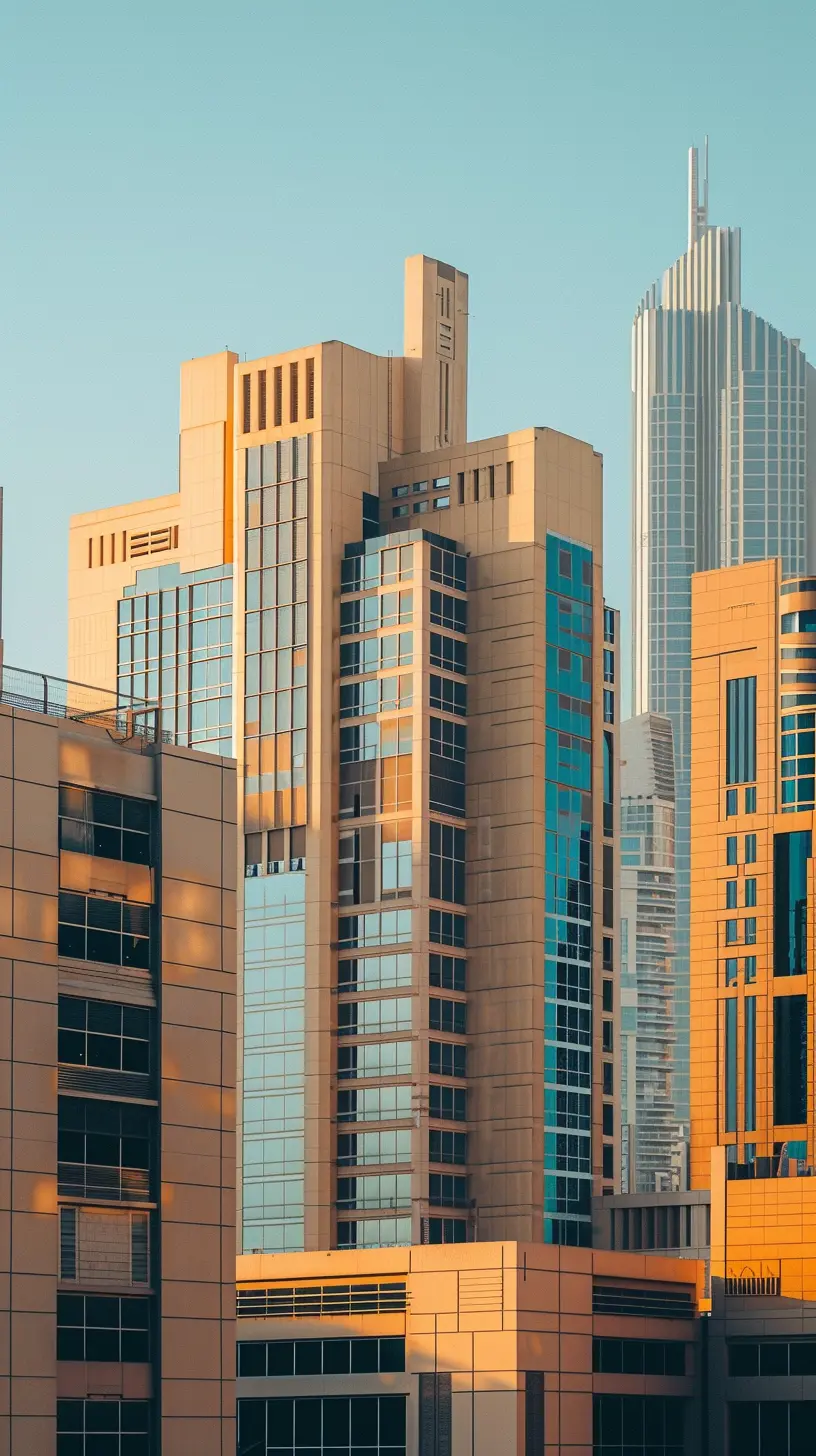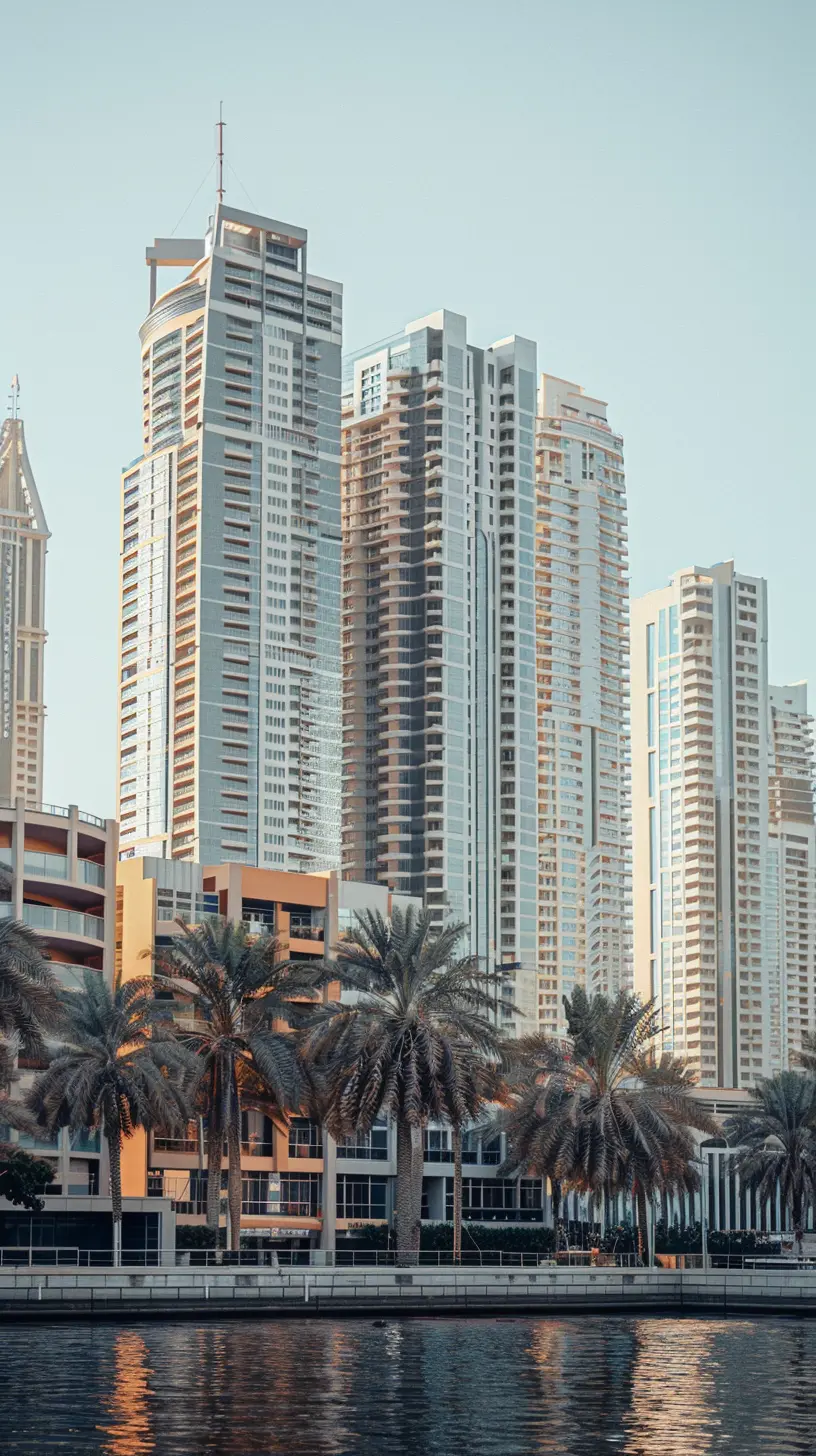❓ Q1: “Should I focus on rental yield or capital appreciation when choosing a one-bedroom?”
💡 A1: Ideally, both – but it depends on your goals. Dubai offers some areas with high yields (e.g., JVC, International City often 7-9% gross nikoliers-global.com) and others with slightly lower yield but higher prestige and growth potential (e.g., Downtown might be 5-6% yield but strong appreciation track record guestready.com ). If you need steady income now, lean to a higher-yield unit. If you’re building long-term wealth and can forego some income, a blue-chip location might payoff more in value rise. Many investors do a mix (one property for yield, one for growth). The good news: even “low yield” prime areas in Dubai often out-yield similar prime areas globally. For example, 5% in Downtown guestready.com vs 3% in central London phoree.ae – and Downtown still has solid growth drivers (limited supply, global appeal). Personally, I advise aiming for at least market yield (6-7%) so that your investment carries itself, and if you get upside on value, that’s icing on the cake. But if you see an opportunity in an area about to boom (like near a future metro or development) and yield is a bit lower, it can be worth it for the ride up. Case by case!
❓ Q2: “What if the market downcycles? How risky is it to hold multiple one-beds
through a downturn?”
💡 A2: Dubai’s market is cyclical, yes. Values can dip in slow years (as seen 2015-2019). But rental demand for one-bedrooms tends to remain robust even in downturns (people still need housing; in fact more people might rent if they aren’t buying). So your income should remain relatively stable – maybe rents soften a bit, but as mentioned, affordable segments are resilient nikoliers-global.com. The key is not to over-leverage so you’re forced to sell at a low point. If you can hold through, you collect rent and wait for the next upturn (like those who held through 2019 saw big gains in 2021-2022 globalpropertyguide.com). Multiple units = diversified locations, which further hedges value risk (unlikely all areas drop equally). I also find downturns are when many investors expand portfolios (buy more at value prices), which you can do if your cash flows are healthy. So, while property prices can fluctuate, if you treat it as a long-term hold for income, the risk of realized loss is low – you only lock in a loss if you sell low. By having a portfolio of rented one-beds, you create a cushion (the rent) that lets you ride out cycles without panic. In short: not very risky if managed prudently, and certainly less volatile than many other investments. As evidence, even during the 2020 Covid shock, one-bedroom rents dropped only single-digit % and rebounded within a year nikoliers-global.com.
❓ Q3: “Is it better to pay off mortgages quickly or keep re-leveraging to buy more?”
💡 A3: This depends on your strategy and comfort with debt. Many HNWIs keep mortgages because UAE rates have been relatively low and they can use spare cash to earn more elsewhere (especially if your property yield > interest rate, it’s profitable to borrow). For growth, re-leveraging (refinancing equity to buy more) can accelerate portfolio building – that’s how many scaled to 10+ units. That said, there’s a balance: you don’t want to end up over-leveragedwith little equity if the market dips, as it limits flexibility. A common approach: use rental income to pay down principal somewhat (building equity), but also take advantage of equity gains to reinvest. Perhaps after 5-7 years you aim to have, say, 50% equity in each property (through gains or payments). That’s fairly conservative, but still possibly double the property count you’d have if you insisted on 0 debt. If you’re risk-tolerant and early in your journey, leveraging more (even interest-only loans) to acquire assets can maximize growth – but be ready to service debt even if a unit is vacant for a bit. If you’re nearing retirement or simply risk-averse, you might start paying off some loans and enjoying more net cash flow versus expanding. One strategy: acquireaggressively in first 10-15 years, then pivot to deleverage – by the time you retire, you hold a portfolio of mostly paid-off properties yielding high income. Bottom line: there’s no one answer – it’s about balancing speed of growth with safety. I often run scenarios for clients to help decide.
❓ Q4: “How do you handle maintenance for multiple properties? Isn’t it a headache?”
💡 A4: It can be if unprepared, but, as discussed in Post 24, you can streamline this. Many small issues can be handled by a single trustworthy handyman who knows your properties. I have one client with 6 units who put each on a basic annual maintenance contract (for AC servicing, etc.) – he calls it “insurance for property” – costs a bit each year but then if anything breaks, the contractor fixes at no extra charge. It simplifies budgeting and he doesn’t get calls for random payments. For things like appliance breakdowns, he keeps a contingency fund (which your rental income should cover easily). Truthfully, one-beds don’t have too many things to maintain (no gardens, one AC chiller, relatively small area to paint). If you scale up, as mentioned, hire a property manager or even a part-time property supervisor who can coordinate all maintenance – they’ll likely get volume discounts from vendors too. So, manageable with the right setup. Think of it this way: many property managers handle 100+ units with a small team – if they can, you can with a fraction of that. Key is proactive maintenance (fix small issues before they become big). If you invest in quality fit-outs and do routine checks, maintenance becomes a minor, not a headache. And you factor those costs into your yield calculations upfront (we usually estimate ~5% of rent for maintenance reserves) – so it’s not a surprise.
❓ Q5: “Are one-bedrooms still a good buy now, given the recent price increases?”
💡 A5: Great question. Dubai’s property market did surge in 2021-2022 globalpropertyguide.com , so some ask if we’re at peak. While no one can predict perfectly, I’d note: prices in many areas are still below 2014 peak levels in real terms, and rents have hit record highs globalpropertyguide.com, which actually makes current yields quite attractive even after price rises. The city’s growth (economic, population) still has legs – e.g., population grew ~5% last year kanebridgenewsme.com and government initiatives (Dubai 2040 plan) aim for nearly doubling residents. That underlying demand likely supports continued strength in one-bed segment (the entry point for many new expats). Even if price growth moderates, you’re buying an income asset with yield higher than mortgage interest – so you’re net positive from day one if financed, or earning far more than bank deposit if cash. Could prices dip in a global recession scenario? Possibly short-term, but if your plan is long-term and you’re cash-flow positive, you can weather that and come out aheadwhen growth resumes. Also, consider relative value: a prime one-bed in Dubai is maybe $400k – that’s still a third or quarter of similar in London, NYC, HK (with higher yield to boot). There’s room for global investors to keep propelling this market. So I’d say yes, they’re still a good buy, especially if you’re selective (there are always some motivated sales or slightly underpriced deals to snag). As with any asset, think 5-10 year horizon. I personally believe Dubai one-beds will deliver strong total returns over that span, based on current fundamentals.
❓ Q6: “Should I self-manage or hire a property manager for my one-bed rentals?”
💡 A6: This comes down to how hands-on you want to be and how much your time is worth. For 1-2 units, many do it themselves to save the ~5-7% management fee and because it’s not too time-consuming (a few calls a year). If you enjoy it or have the bandwidth, go for it – you’ll learn the ropes intimately. But if you’re too busy or often traveling, a good property manager can be a godsend – truly passive income then. I generally recommend: as soon as the stress or effort of managing outweighs the fee cost, outsource it. Some of my clients managed until they hit 3 units, then realized coordinating three sets of tenants and maintenance was distracting them from their day job – at that point, handing off made sense. Financially, a manager might also keep occupancy high and handle rent increases professionally, potentially offsetting muchof their fee. For example, a diligent manager might get your renewals done at +5% where you might avoid the awkward conversation and leave money on table; they might list and rent a vacant unit faster than you could while you’re busy at work. Those gains count. So it’s personal. A hybrid approach: do it yourself at first to learn and save money, then as you scale or if it starts to be a hassle, bring in pro help. There’s no shame in that – even institutional investors outsource management to specialized firms. The key is your peace of mind and portfolio performance. I hope these answers provide clarity and value!
If you have more questions or want to discuss any of these topics in detail, drop a comment or send me a direct message. I’m always here to help fellow investors make informed decisions. And if you found this series useful, please give this post a 👍 or share which insight was most eye-opening for you. Thank you for joining me on this 10-week journey through Dubai’s one-bedroom investment landscape – here’s to your continued success and savvy investing! 🥂🏠💼
Have a question I didn’t cover? Ask below – I’ll be responding!






